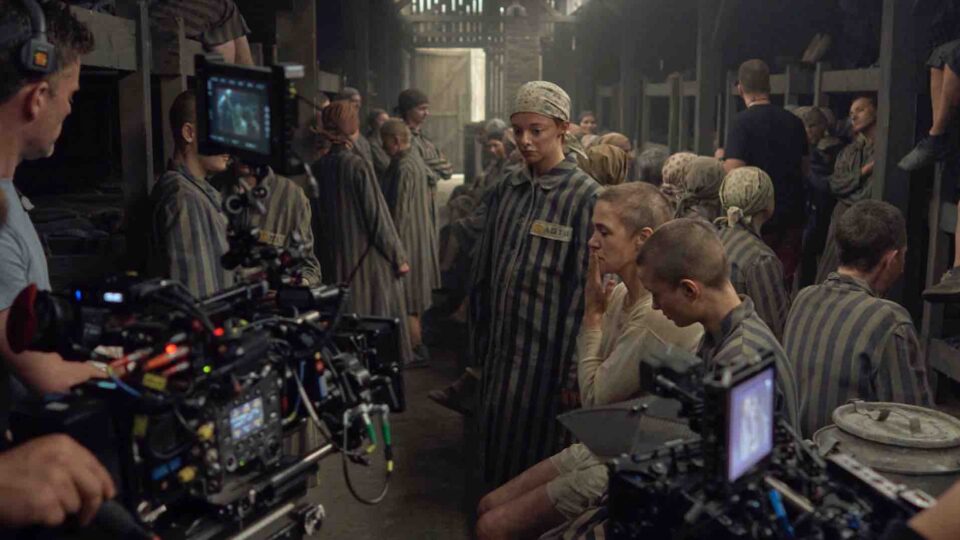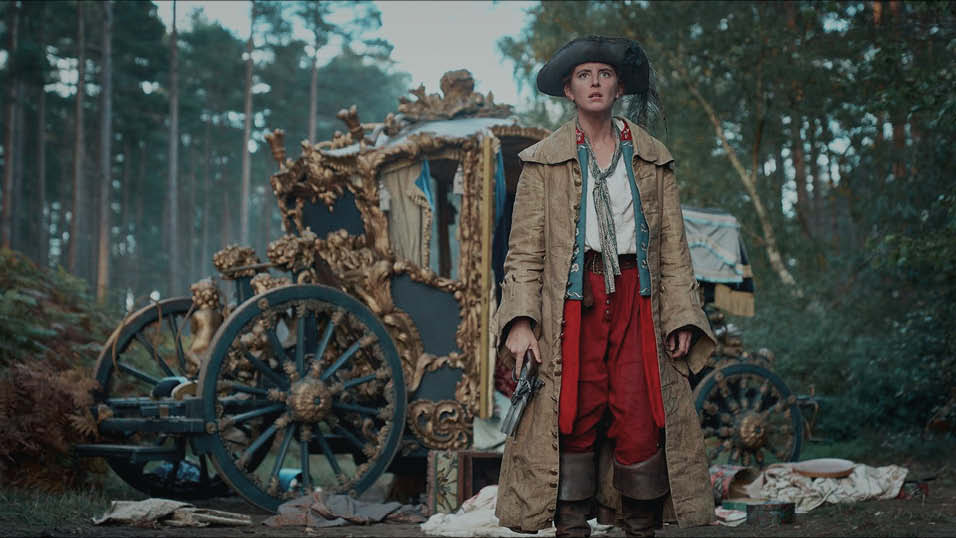We’re repeatedly told social media is a serious threat to traditional, old-fashioned, backwards television. But I don’t agree. It presents a massive opportunity for the creative renewal of our medium, one we should all be ‘cracking on’ with across all genres – but especially entertainment. Both in terms of storytelling and brand building. For too long it has been seen as an ‘us’ and ‘them’ by TV producers. It’s time to blur those boundaries.
But first, let’s play along with the doom and gloom we’re supposed to subscribe to about TV’s non-existent chances of winning the ‘battle’ for younger viewers against social media… being ‘mugged off’ by Insta and the rest. Don’t worry, I promise, no more Love Island references for at least the next two or three paragraphs.
If you believe what you often read, those pesky millennials (dear readers, I must confess I’m one of them) and their Gen Z younger siblings are abandoning long form broadcast content for short and mid form on social platforms.
Sorry Planet Earth 2, Game Of Thrones and Britain’s Got Talent – there’s no room for you in the hearts of younger viewers, you can’t compete with a ‘clutter hack’ video on Facebook that has generated 396 Million Views with its tips on how to fold a t-shirt. Sorry Jon Snow, you might fancy your chances against the dead army on TV, but you’re stuffed against an army of cute kittens and food hacks on social platforms. What a shame for Jon and television.
And sadly the game’s supposedly also up for 40 inch, old-fashioned on-screen talents like Jon too. It’s been taken as gospel by many of us working within television, desperately wanting to appear in the know, that social media stars are now far more relevant to millennials on 5.5 inch screens, than those from the bygone era of linear TV. So sorry Sir David, Kit and Cowell – your time is up. Best leave it all behind and start witty, positive social feeds instead.
Sorry too to the Love Island cast (four paragraphs later, I kept my promise), but you’ve missed the boat with the Under 35’s. If only you’d all started YouTube channels ten years ago instead and vlogged about your latest style haul, you’d still be relevant, instead of wasting your time making millions of pounds opening club nights and endorsing beauty products on Instagram for thousands of pounds per picture on the back of your newfound broadcast TV fame and huge new social followings.
What, you’ve conquered social and linear? #WTF? And here’s the point:
Contrary to the doom and gloom of many industry commentators, particularly powerful voices from the new digital and social players, television is uniquely well placed to reap the rewards of social – If, and only if, it listens to and incorporates social within its programmes. Love Island has taken an incredibly positive lead this summer in unscripted, which others should and will follow.
Firstly, big and ambitious, stripped event television holds huge potential for all broadcasters and programme makers. According to Tubular Insights 92 percent of millennials browse on other devices while watching TV programs. But they need to be fed. The social numbers and trending hashtags don’t lie, millions of those watching Love Island are clearly engaging with their peer group about the show across social media as the regularity and scale of the show feeds the social media beast. This drives further traditional viewership – millennials on social want to get in on the conversation with their friends about what they’re watching on linear, it is no longer the other way round for this group.
Love Island has also uniquely managed to weave social, particularly popular tweets, back into the linear show as part of the show’s tasks, creating a feedback loop demonstrating it values, its audience and their creativity. This breeds brand loyalty and increases activity on social. It’s a runaway train, driving more and more engagement as people know they’re going to be listened to.
The show has had stellar success disseminating unseen footage across the show’s social channels in order to build up a unique set of extras and experiences for the most loyal of fans on social. It blurs the line between the social and linear shows – as both offerings give new insights into the story and favourite characters.
This also helps massively as it keeps the conversation about the show going on Facebook, Instagram, Snapchat and Twitter, long after the episodes are over. It keeps viewers engaged with the brand between the daily episodes, making it more valuable to sponsors keen to get in on the action.
Social media has in all respects been fundamental to Love Island’s break out success this summer, rather than being a by-product of that success. Others will now follow suit.
At Gobstopper, we’ve been working all summer on our own social media driven reality series, Single AF, launching on MTV in late October. We’ve taken social one step further on our show, using it to open up the doors to any fan of the show and allow them to date any of our seven celebrities, across 10 different countries, all key territories for the channel.
Our audience spent two weeks in July engaging with the show in real time racking up tens of millions of views across the show’s social media accounts as we went social first with our storytelling, with only the final week of the three week shoot being held back from the audience.
Time will soon tell if this social activity will convert back into linear viewers, but our strong feeling is it will. We’ve featured social comments from our fans in innovative graphics packages within episodes, and these reflect the voice social media gives to audiences. We want to celebrate their contribution to our storytelling across platforms, blurring the boundaries between social and linear in the process.
In an era of falling ad revenues, it’s even more important that we all build shows which foster social media storytelling, to keep audiences and brands interested in our products.
There is real work to do in order to make sure television, particularly unscripted, remains relevant to younger audiences. So we best all ‘crack on.’
It’s time to do what TV does best – steal other people’s ideas and do them better. Do you remember when Cinema featured the best storytelling, the best actors and the best visuals? Me neither, Sopranos and two decades worth of cutting edge TV drama put an end to that.
It’s time to do the same with social. Let us all embrace it and reap the rewards.
Ross McCarthy is the md of Gobstopper
Staff Reporter
Share this story

















